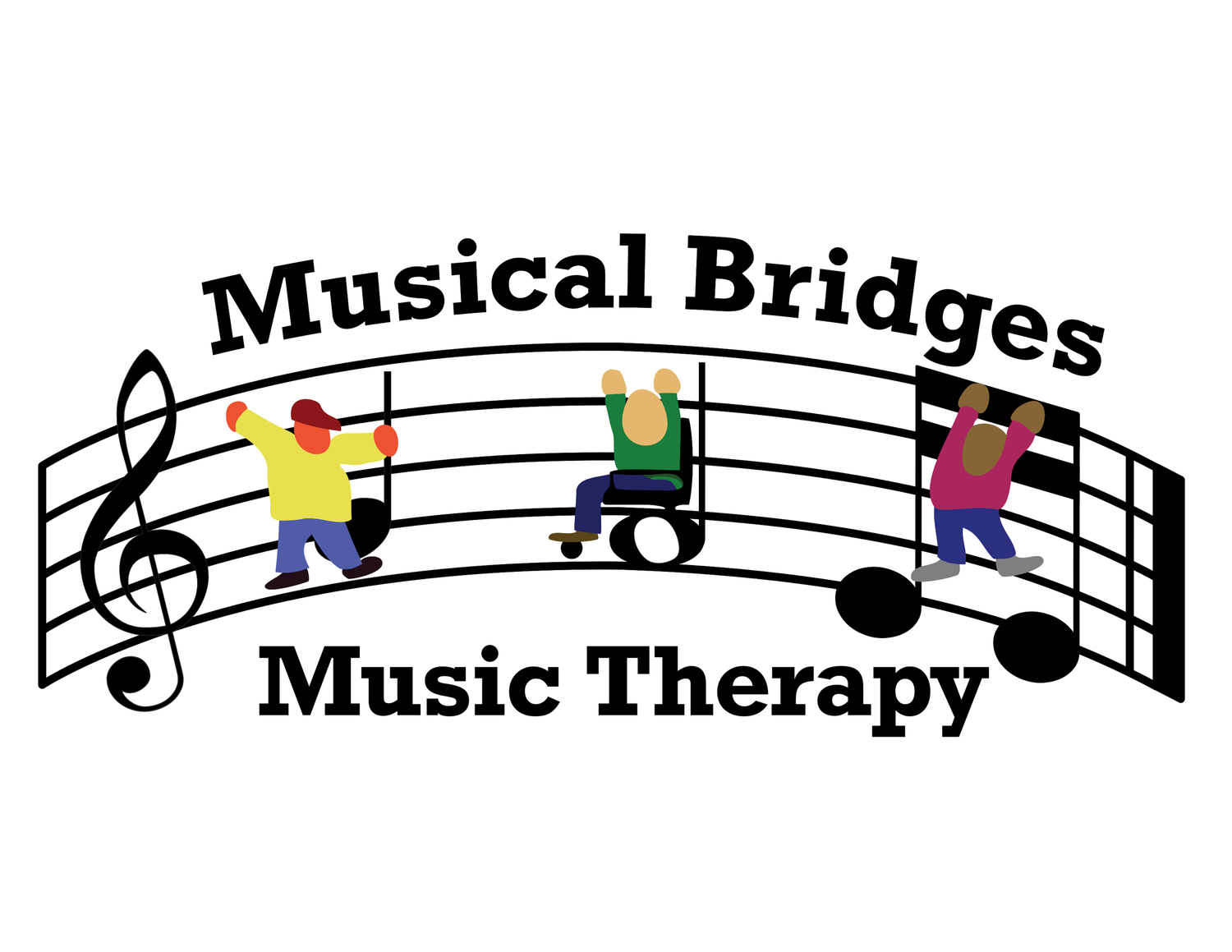Neurologic Music Therapy Breakdown: MEFT
Welcome back to our NMT breakdown! When you last joined us, we went in depth regarding Developmental Speech and Language Training (DSLM). This week we will be moving back to cognitive functions. The technique we will be elaborating on is Musical Executive Functioning Training MEFT.
What is MEFT?
MEFT is the use of improvisation and composition exercises in a group or individually to practice executive function skills such as organization, problem solving, decision making, reasoning, and comprehension, within a social; context that provides important therapeutic elements such as performance products in real time, temporal structure, creative process, affective content, sensory structure, and social interaction patterns (Dolan 2002).
What is Executive Function?
Executive functioning takes place in the prefrontal cortex, basal ganglia and thalamus. All of which reside in the frontal lobe of the brain, which is the last part of the brain to fully develop. Executive function skills are what allow us to make decisions, organize, control our impulses, problem solve, reason, and comprehend. These skills also affect our memory, ability to multitask, manage time, set goals, meet deadlines, and initiate tasks.
What can be targeted by MEFT?
Organization skills: These skills create an environment conducive to learning and accomplishing your goals. Organizing is a service to your future self. Lack of organization can lead to stress and depression.
Impulse control: This executive functioning skill helps us function independently in society. Impulse control can be categorized as self-control as well. Having the self-control to think before you act is a big contributor in one's ability to keep themselves safe and healthy.
Time management: Being able to productively use your time is important not only in day-to-day life but also in school settings, social settings, and work environments. Being able to plan your time, realistically, to accomplish what you have for the day is essential.
Goal setting: Setting attainable targets independently or even with assistance can be a struggle. How many New Year's resolutions have you stuck with?
Problem-solving: Working through difficulties and finding solutions can be daunting for anyone. Problem solving is a multistep process that includes identifying the problem at hand, finding the cause of the problem, setting priorities, finding a viable solution, and implementing the solution.
Initiating tasks: The absence of procrastination is something that so many people strive for. Being able to start a task in a timely manner in order to avoid a time crunch or being unable to finish a task can be daunting and stress inducing.
Flexible thinking: Being a creative thinker is tougher than it sounds. Moving away from rigid thinking can be a challenge, but being able to think about situations and problems in new ways can help you adjust to change and grow.
Working memory: This executive ability deals with short term memory and the immediate recall of newly learned information. Trying to remember a verbal or written instruction you just received for example, trying to remember the previous sentence in this post as well.
What does this look like in music therapy?
In Music Therapy MEFT can take form in a variety of ways. As Music Therapists we can utilize improvisation and composition. We might sing, play instruments, use a recording, or a combination of all three. Below are some examples of how this technique might play out in a therapy setting.
A fun group activity to work on executive functioning is following the leader through instrumental play. This activity targets several executive function skills including, time management, initiating, termination, flexible thinking, working memory, and impulse control. Group members will all have a variety of percussion instruments and the “leader” will be the only group member with a melodic instrument such as a xylophone. When a group member has the chance to be the leader they will decide how and when the rest of the group plays their instruments. For example, if the leader is playing slow, the group will also play slow, same for if the leader were to play fast, quiet, or loud. Another fun addition would be for the leader to stop and start playing, cueing the rest of the group to do the same. Additionally, the leader can decide when their turn as leader is over. For the leader they are working on flexible thinking, initiating, termination, and time management. The group incorporates working memory, impulse control, and flexible thinking on their end.
With an individual we might be working on telling time. In Music Therapy we might use an original or piggyback song to work on this skill. A personal favorite is using Nine in the Afternoon by Panic! at the Disco. Using adapted lyrics to the first verse you can change the numeral time and the time of day— morning, afternoon, or night. The individual and therapist can take turns deciding what time to change the clock to. This can become hands on and visual with the use of an adjustable analog or digital clock, or by drawing out the clock and having the individual input the correct numbers.
“Oh it’s 8:00 in the morning, you’re changing the time on the clock, we might throw in the minute hand too, oh you’re doing so good changing the time, oh it’s 8:00 in the morning.”
This task incorporates working memory, task completion, task initiation, and time management.
How does music make this work?
Using music helps to stimulate the brain and converge affective and cognitive processes. Music provides tangible visual and auditorial cues within that assist in completing tasks. As we have talked about in past posts as well, music is a phenomenal motivator. Incorporating music within an executive function task helps to sustain attention so that an individual can focus.
Musical Executive Functioning Training is just one of the NMT techniques our Musical Bridges Music Therapists are trained in. Join us as we continue highlighting new techniques!




